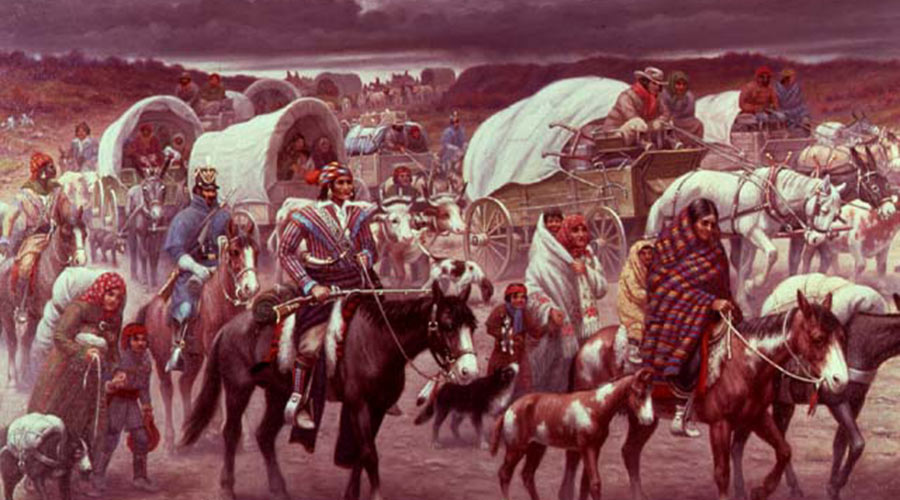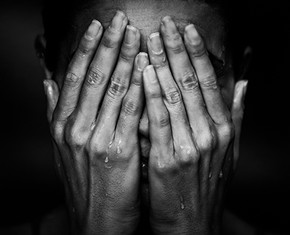The views expressed in our content reflect individual perspectives and do not represent the authoritative views of the Baha'i Faith.
Is ignorance a form of oppression? Can something you don’t know actually hurt you?
Those questions have arisen lately in the City of New Orleans, the famous American melting pot and capital of cultural diversity. As New Orleans has begun taking down some of the monuments, memorials and statues that celebrate its Southern white supremacist past—tributes to Confederate figures like Robert E. Lee and Jefferson Davis—people have openly wondered: “Doesn’t that destroy our heritage and history?”
One prominent local businessman there, upset over the removal of the monuments, paid for and ran a two-page ad in local newspapers, publicly asking the New Orleans Mayor: “Should the pyramids in Egypt be destroyed since they were built entirely by slave labor? What about the Roman Coliseum? It was built by slaves, and … we learn so much from seeing it.”
He has an interesting point—should society rid itself of the racist symbols of the past, or should we keep them as reminders of how far we’ve come?
The Mayor of New Orleans—who admitted his own long-term ignorance about the monuments—responded to those important questions with a story and a few questions of his own:
Landrieu explained that his perspective shifted on the monuments (which he admitted he may have passed 1,000 times without notice) after conversations with people of color, particularly with [jazz musician] Wynton Marsalis, who asked him hypothetically how he would explain Lee’s presence above the city to a black child.
“Can you do it?” Landrieu said. “Can you look into the eyes of this young girl and convince her that Robert E. Lee is there to encourage her? Do you think she feels inspired and hopeful by that statue? … “ – Clint Smith, The Young Black Activists Targeting New Orleans’s Confederate Monuments, The New Republic Magazine, May 18, 2017.
In the Mayor’s place, what would you do? Would you side with the activists who want the monuments taken down, or would you agree with the historical preservationists—and the white supremacists—who call such removals a “denial of our heritage” and “a traitorous act”?
This is not simply a local issue, because thousands of cities and towns around the world have statues, symbols and street names that harken back to a brutal and hateful past. Every time an American spends a dollar, we honor George Washington the slave owner. When you hand over a twenty-dollar bill, you see Andrew Jackson’s likeness—the American president who supported slavery and brutalized and killed Native Americans in the Trail of Tears.

So back to the businessman’s original question: Should we destroy the pyramids in Egypt because they were built by slaves?
It’s unlikely that will ever happen, just as it’s unlikely we’ll demolish the White House in Washington, D.C. for the same reason. Those structures, definitely built by slaves, have assumed historical and cultural significance that transcends their origins—and even honors their builders.
But a statue or a memorial intended to valorize, popularize and exalt a champion of slavery is fundamentally different. The intent of a monument like that, the Mayor of New Orleans said in a speech, is to “to rewrite history, to hide the truth, which is the Confederacy was on the wrong side of humanity … not just innocent remembrances of a benign history,” but ones that are “ignoring the death, ignoring the enslavement the terror that it actually stood for,” sending a strong message about “who was still in charge of this city.”
Recently, the National Spiritual Assembly of the United States wrote a letter to all of the American Baha’is that dealt with the core issue here, recognizing that “… the vast majority of us sincerely desire justice, and must be unifying rather than divisive.” The letter said, in part:
The resolution to these challenges lies in recognizing and embracing the truth at the heart of Baha’u’llah’s Revelation―the incontrovertible truth that humanity is one. Ignorance of this truth―which embodies the very spirit of the Age―is itself a form of oppression, for without it, it is impossible to build a truly just and peaceful world.
The oneness of humanity is far more than a slogan or an abstract and unattainable ideal. It has profound implications for both personal behavior and for the way society is organized― challenging many current assumptions and revolutionizing our conceptions of the relationships that should exist between the individual, society, and its institutions. – The National Spiritual Assembly of the Baha’is of the United States, February 25, 2017.
“Ignorance of this truth,” Baha’is believe, “… is itself a form of oppression …” In other words, if we don’t know about the oneness of humanity, on both a scientific and a spiritual level, we oppress ourselves—and others. Rather than taking that path, the Baha’i teachings recommend, we can now defend the victims of oppression by accepting the “incontrovertible truth that humanity is one:”
Be as a lamp unto them that walk in darkness, a joy to the sorrowful, a sea for the thirsty, a haven for the distressed, an upholder and defender of the victim of oppression. – Baha’u’llah, Gleanings from the Writings of Baha’u’llah, p. 285.
Former centuries were epochs of oppression. Now human intellects have developed, and human intelligence has increased. Each soul is investigating reality. This is not a time when we shall wage war and be hostile toward each other. We are living at a time when we should enjoy real friendship. – Abdu’l-Baha, The Promulgation of Universal Peace, pp. 222-223.
You May Also Like
Comments

















Truly, I think it is important to realize that symbols can mean different things for different people. My grandmother had artwork that contained swastikas prominently displayed on her wall. Was she a Nazi? No, she was, in fact, a victim of the Nazis. But to her it was not a swastika, but a perkonskrusts, a Latvian symbol from her culture.
In the civil war, truly there was bad on both sides. The South wanted to preserve slavery, and the North committed serious war crimes, destroying crops, farmland, and targeting civilians, things not even permitted in ...war by the Laws of God before all war was abolished in this modern day.
Continuing in part 2:
I certainly don't agree with their decision to do so, any more than I agree with those who want to honor those who fought for the North and committed war crimes, those who committed war crimes in Viet Nam, and those of the RAF in WWII who bombed ...my family as they fled as refugees across Europe. I don't agree with memorializing any of those warriors, but I understand why some wish to do so, and see no harm in permitting it.
I would prefer a world in which we never memorialized any side in any war, especially an aggressor. But as it stands, I understand why some people want to honor warriors, though I disagree with the notion.
Continuing in part 3: